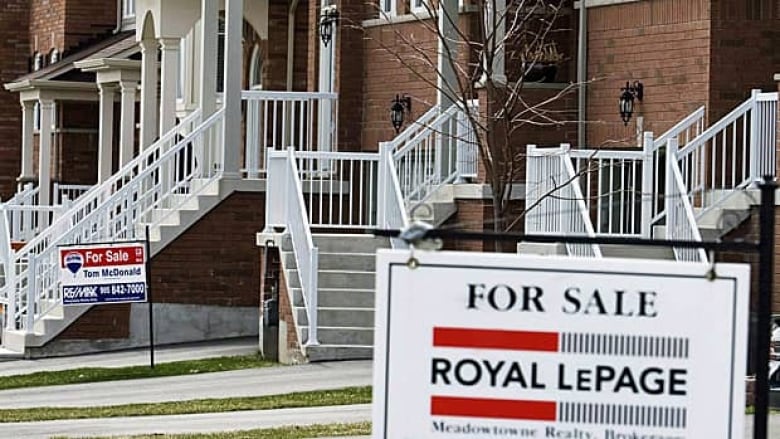Online versus traditional banks: how to find the best fit
Balancing fees and financial advice for big life decisions key to picking a bank

An increasing number of Canadians are choosing to bank online without fees, rather than traditional brick and mortar financial institutions where their parents kept their money.
Online banks PC Financial and Tangerine promote their no-fee chequing accounts as a way for customers to avoid fees and save money.
"Pay no daily banking fees, earn PC Points and get great rates," President's Choice Financial says on its website.
"We won't nickel and dime you with unfair fees," Tangerine promises.
'I've been spoiled'
Randy Burrill of Dartmouth started using an online bank as a teenager when a friend suggested he leave a traditional bank.
"I've avoided fees for 18 years," Burrill said. "I've been spoiled. I have yet to pay a single fee."
With some big life decisions coming up, he's wondering whether he needs a traditional bank in order to get advice.
- TD Canada Trust adds fee for TFSA transfers to another bank
- BMO rolls out robo-adviser for tech-savvy investors
- House keys sent to the bank? Your thoughts on mortgage defaults
Big decisions
Those big decisions are what potential online bank customers need to consider, according to Ramesh Venkat, an associate professor at the Sobey School of Business at Saint Mary's University in Halifax.
Low banking fees for routine transactions at the surface are a good deal, he said, but warned that's not everything.
"If you tend to go purely online and you never get to talk to a qualified financial advisor, sometimes you do miss out on those opportunities," Venkat said.
"Banking fees are one part of the equation, but you have to look at all the financial decisions you're making and whether you're making good decisions overall."
Face-to-face advantage
Traditional banks are trying to get customers to do routine transactions online since the cost of serving a customer through a teller is 25-40 times higher than the cost of providing service online, he said.
But many people, he said, still prefer to have those big financial discussions with someone face-to-face, an advantage for traditional banks.
"That's where they can cross-sell and they can provide the financial advice and get the consumer to consider products they haven't considered," Venkat said.

Online bankers have options for advice
Using a digital bank doesn't mean you miss out on opportunities for advice — because there are experts who can help, according to Alyssa Furtado, the founder of ratehub.ca, an online site that allows people to compare rates on financial services and fees.

"When I got my mortgage, I worked with a mortgage broker and was blown away by the level of service and knowledge I was able to tap into," Furtado said.
"I personally invest my RRSPs with a robo-advisor called Wealthsimple, and being able to talk with their advisor was some of the most powerful and useful advice I was able to get."
Number of online banks growing
Furtado points to the emergence of new online banks as a sign that customers want fewer fees.
"Equitable bank just launched a digital bank called EQ. There's also Zag, Koho and Zenbanx, so obviously these are being launched to answer a need," she said.
She said many of her site's users were excited about the launch of EQ because email transfers were offered for free. She said many millennials and generation Yers spend upwards of $5 to $10 each month on e-transfers that cost $1.50 a piece.
Furtado says there's no right answer to the question of whether a traditional or online bank is best for you since it depends on your own situation.
"That means checking your accounts to see just how much monthly banking is costing you and whether you'll actually benefit from moving to an online bank," Furtado said.

Customers choosier
While low fees are enticing for some, Furtado said you still have to ask whether you have more sophisticated banking needs that will add up.
For example, at her business, consumers can compare products on "an apple to apple basis" and explain various fees from different accounts.
"You can find that from the big banks on their web sites in an easy to digest way," Furtado said.
She said traffic on the site is growing by about 30 per cent per year. With around 300,000 users, she said that indicates more people are comfortable going online.
"It's not the case they're going to go to their branch, walk in the door and assume they're getting the best rate."

